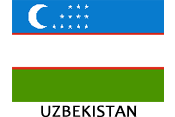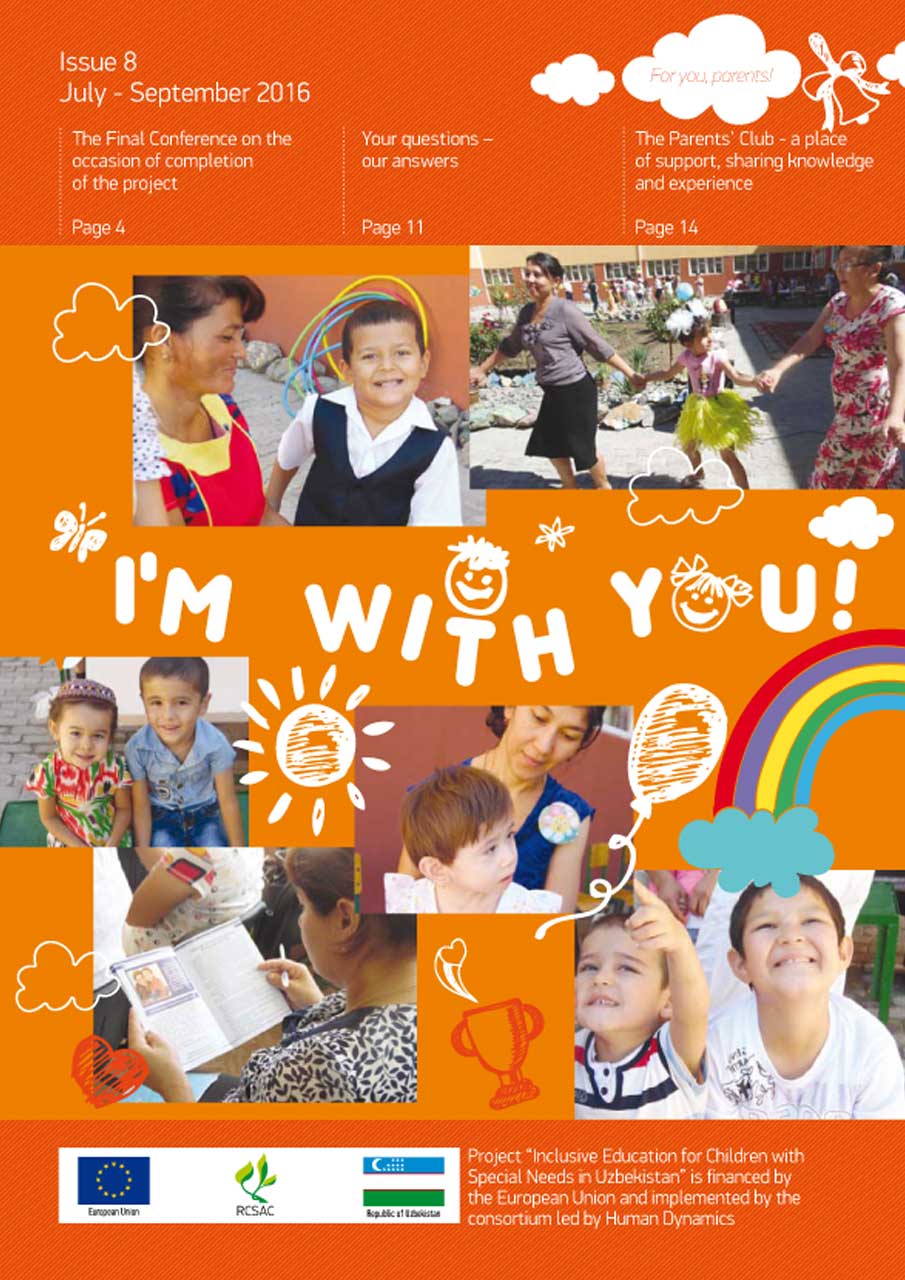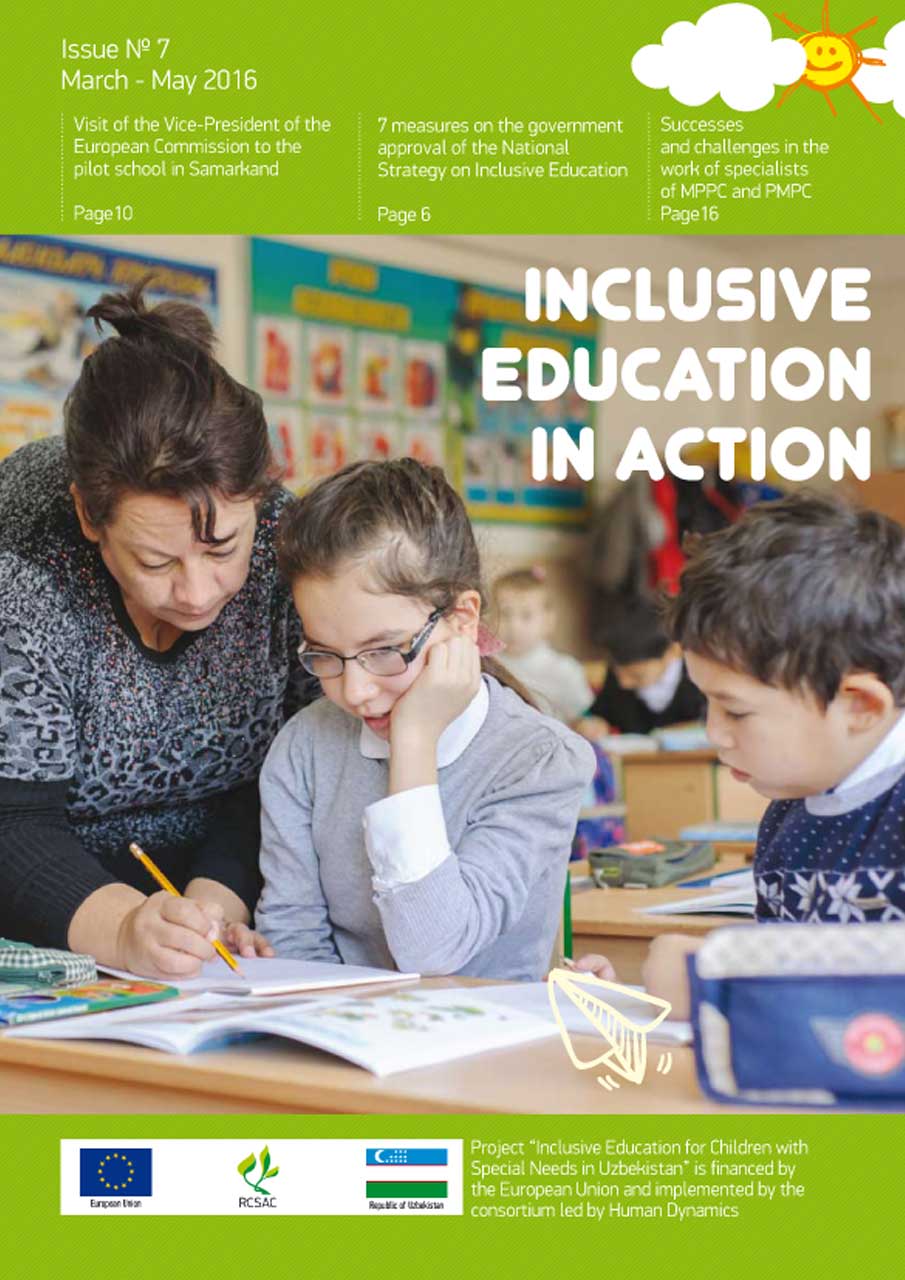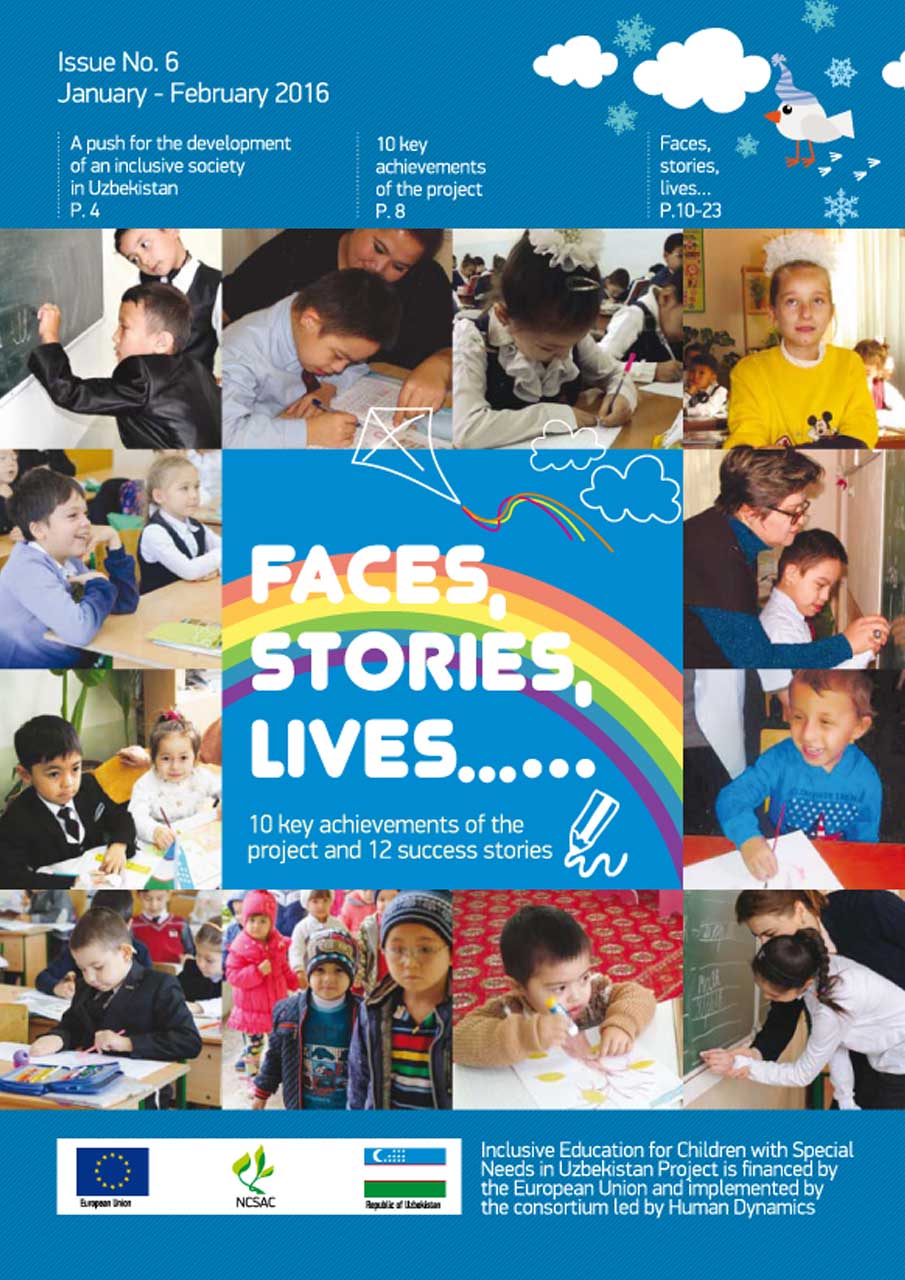The participants share their impressions of the Training for Trainers on Inclusive Education in Uzbekistan:
Dineeva Z., Deputy Director of the Resource Center at school No. 10, Urgench:
After the Training I came to realize that they are the same people as we are, they just need a special attention from the society as a whole
“Before now, without knowing the right information on the people with special needs, I could not objectively talk on the topic whether these children could be taught in nonspecialized institutions. Having completed a 10-days Training for Trainers, I came to realize: they are the same people as we are; they just need a special attention from the whole society. They have the same rights as everyone else. They are protected by Laws, both internationally and nationally.
Having passed the Training for Trainers, I got enormous life experience in communication with new people, and unlocked both an intellectual and creative potential, acquired skills of conducting the trainings, both for parents, and for teachers, learned a lot of new information on people with special needs and their capacities”.
Aliyeva F.D., a Psychologist in the branch of Republican Centre for Social Adaptation of Children (RCSAC), Samarqand:
Everyone has the right to education... Education shall be directed to the full development of the human personality and to the strengthening of respect for human rights and fundamental freedoms.
Aticle 26, The Universal Declaration of Human Rights
“During these days, I have revised my views and changed the understanding of such important points as a special approach to training:
• a person’s worth does not depend on his abilities and achievements;
• everyone is able to feel and think;
• everyone has the right to communicate, and to be heard;
• all people need each other;
• all people need support and friendship of peers;
• learning process is what specifically children can do, but not what is required;
• diversity enhances all aspects of human life.
Not the process of learning at school is important for me now, but that the teacher should think deeper, perceive a child with special needs easier, and be ready for small changes in the environment. The success of our Pr oject “Inclusive Education” depends largely on simple teachers: their openness and willingness to accept a child with special needs in the class. A lot of things depend on us, trained trainers. How would we present information on Inclusive Education to parents of children with special needs, how would we reach out to the feelings of parents who do not have children with special needs?
How would we delicately explain Inclusive Education processes to teachers and the public so that it does not look like an invasion which is destroying an ordinary, already established familiar learning process? The most important thing for a teacher is to find a possibility to correct the curriculum and to combine various opportunities in the classroom to simultaneously teach children of different levels. It is difficult, but it is possible. Inclusion is the best way of individualization in education, as every child is individual and requires an actual special approach”.
Success of the Project depends largely on simple teachers: on their openness and willingness to accept a child with special needs in the class
Rakhmatullaeva R., parent of a child with special needs, Samarkand:
“The main thing is that the child feels himself a full member of society and benefits it in future. By creating conditions for the protection of children with special needs w e will put an end to discrimination and create conditions for the promotion, participation, development and inclusion of children in society”.
Adilova Sh.A., teacher of Children’s Educational Institution No. 76 “Ivushka” (Willow), Samarqand
“For the first time I hav e held a presentation at the seminar, and after that I had a desire to conduct seminars and trainings all by myself. Currently, based on the kno wledge gained, I want to share with my colleagues a basic idea that “we are different but w e are together”.
Umarova D.,teacher of school No. 17, Samarkand:
“As a school teacher I like information on essential skill for effective education for all children – differentiation. I realized that it makes no sense to teach all children the same thing, in the same way, and expect from all children the same results, progress and achievements”.
Unfortunately, the majority of teachers and parents have prejudices against children with special needs. They believe that presence of such children will have influence on the progress of other children. However, prejudiced attitudes often change when people begin more closely and regularly communicate with group of children with special needs. Parents and teachers realize that their stereotypic attitude was initially wrong”.
Шадыбаев Р.Р., преподаShadybaev R.R., teacher, College of Light Industry and Economics, Samarkand:
“Before participation in the trainings I as well as many other people thought in stereotypes, I believed that children with special needs should be in specialized institutions. However, my thinking has radically changed! An important part of the trainings was work in large and small groups, thanks to them I have appreciated the importance of the team, the ability of group to quickly make unconventional decisions, I felt the support of partners and their respect. I understood that the solid foundation for beneficial work in the future is created now”.
Makhudova E.I., elementary school teacher, school No. 13, Samarkand:
“Inclusion is a change. Changes frighten everyone. That is the way of our organism. But in this case it is about human rights, and we have to move towards changes anyway. Parents of all categories of children need support, formation of the correct attitudes to collaborative learning of children. Attitude of peers towards children with special needs depends directly on the firm position of adults and environment in the class as a whole.
At the seminar they let us understand that the child is included as much as he can. And his abilities to gradually increase, including because he is learning to be with other children, and they learn to live together with him. Now I know how to work with children with special needs and I am not afraid of it …” The basis of inclusive education is ideology that excludes any discrimination against children and ensures equal attitude towards all people.
This creates the best conditions for children with special educational needs. Passing socialization in childhood, learning to adapt and gain knowledge among peers, the child subsequently becomes an active and valuable member of a society, bringing obvious benefits in the form of the results of his labor to the country and humanity. By implementing all his needs, such a person feels completely full and happy, perceiving his physical disability as a minor fact.
Inclusive education is beneficial, or rather, it is essential for the development of all categories of children. The younger the child entering the children’s collective is, the earlier he forms the mechanisms of adaptation in a society, plays the species roles and acquires communication skills with any person regardless of his physical health.
Publishing
Contact Information
- Офис проекта "Инклюзивное образование для детей с особыми потребностями в Республике Узбекистан"
Республиканский центр социальной адаптации детей
Абдулла Каххар, 34
Ташкент 100100
Узбекистан - Тел: (+99890) 980-82-98
- Email: inklyuzivnoe.obrazovanie@hd-ie.com
List of Parent’s Clubs in Pilot regions:
Parent's Club in Urgench:
Established: September 2015
Number of members: 142 parents
Contact person: Muyassar Ibragimova
Phone: (+998 93) 922-71-22
Parent's Club in Termez:
Established: February 2015
Number of members: 14 parents
Contact person: Maya Ganieva
Phone: (+99891) 580-30-65
Parent's Club in Namangan
Established: May 2015
Number of members: 25 parents
Contact person: Nilufar Hudaykulova
Phone: (+99891)368-05-78
Parent's Club in Samarkand
Established: February 2014
Number of members: 25 parents
Contact person: Rakhmatullaeva Rohat Abdugafarovna – Chairman
Phone: (+998 91) 559-85-21
Parent's Club in Tashkent
Established: September 2015
Number of members: 15 parents
Contact person: RozmetovNasiba
Phone: (+99897) 709-76-18,(+99890 ) 952-06-22






